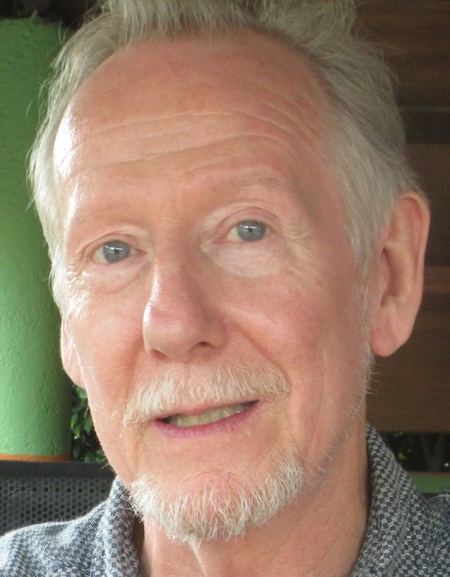This is a past event
Folk Narrative as Terror Therapy in Scotland, Appalachia, and the Wake of Disasters Worldwide
In oral traditions worldwide, tales tend to come out at night, and they do the work of darkness. Narrators from Scotland and Appalachia use the darkness from which their tales emerge as a ground for unseen, but colorful words. These words in turn inspire listeners to fashion vivid, visual worlds which they can see only with their eyes closed. Terror may be the sharpest spur to the formation of these images—and wise narrators manipulate the fear factor to shape unforgettable lessons for their most receptive listeners. Sharing terror creates a bond that transcends fear to accomplish healing. A similar therapy is at work in the stories of disaster survivors, which are reshaped over time to convert memories of loss into scripts for salvation, and for that reason, such narratives need to be told in certain ways and under certain conditions enabling survivors the most power possible to heal themselves.
Professor Carl Lindahl (University of Houston) is a Fellow of the American Folklore Society, a Fulbright Distinguished Scholar, a Folklore Fellow of the Finnish Academy of Sciences, and an internationally recognized authority in folk narrative, medieval folklore, folktales and legends, festivals and celebrations, folklore fieldwork, traditional healing strategies, and ways in which folk cultures seek and exercise covert power. Among the folk cultures he has explored are French Americans (Cajun, Creole, and Caribbean) and the regional cultures of Texas, Appalachia, and the Ozarks
Lindahl’s Swapping Stories: Folktales from Louisiana (1997) was named the Louisiana Humanities Book of the Year by the Louisiana Endowment for the Humanities. He has received the Alcée Fortier Award from the American Folklore society, and has won a University of Houston Teaching Excellence Award. Among his books are Cajun Mardi Gras Masks (1997), American Folktales from the Collections of the Library of Congress (2004), and Second Line Rescue: Improvised Responses to Katrina and Rita (2013).
He currently serves on the editorial boards of Fabula: Journal of Folktale Studies (Göttingen, Germany) and Folk Life (Belfast, Northern Ireland) as well as the advisory board of the Folklife and Traditional Arts program of Houston Arts Alliance.
In 2005 he founded Surviving Katrina and Rita in Houston [SKRH], the world's first project in which disaster survivors have taken the lead in documenting fellow survivors' experience of disaster. He continues to co-direct SKRH, which has received worldwide recognition for its role in aiding survivors overcome the traumatic effects of hurricanes. In 2014 he convened a Rockefeller Foundation Bellagio Conference bringing together ethnographers, disaster survivors, and public health specialists from seven countries to strategize ways in which to help survivors draw upon their traditional knowledge to become more active agents in their own recovery. The conference culminated with the formation of the International Commission for Survivor-Centered Disaster Recovery, of which he is the founding organizer. Also in 2014 he began working with Haitians to create Sivivan pou Sivivan (Survivor to Survivor), a pilot program based on the model of SKRH, in which Haitian earthquake survivors interview one another. Lindahl is working to make Sivivan pou Sivivan a self-sustaining, entirely Haitian-run and Haitian-staffed program.
This event is FREE, but booking is required HERE.
The David Buchan Lecture was launched in 2015 to celebrate the twentieth anniversary of the founding of the Elphinstone Institute. The lecture is in memory of the influential ballad and contemporary legend scholar who was also the Institute's first appointed director. This annual event places Ethnology and Folklore firmly in the university calendar and appeals to a wide audience across the university as well as to the general public.
- Speaker
- Professor Carl Lindahl
- Hosted by
- Elphinstone Institute
- Venue
- King's Conference Centre
- Contact
-
For more information contact the Elphinstone Institute on 01224 272996 or elphinstone@abdn.ac.uk

